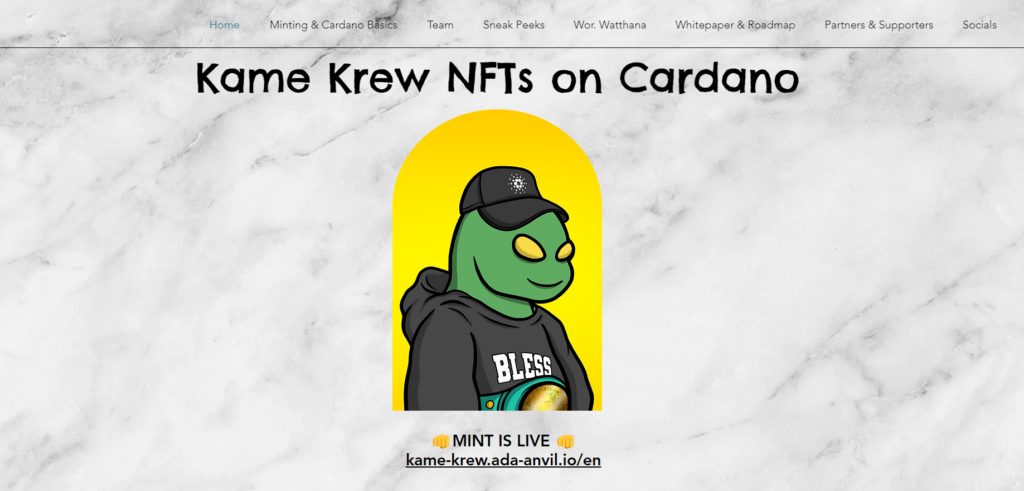The How-To's of NFT Taxes
WE FEEL YOU when the first thing that comes to your mind is, “What is it?”
For months, a lot of us thought the same. It’s new. New things tend to seem complicated for some time before we eventually get the hang of it.
There’s no need to fret if you’re still confused even after reading about NFTs.
NFTs = Non-fungible tokens. NFTs are distinct assets that are built, stored, and verified on the blockchain. Essentially, it’s a type of digital ownership.
Indeed, it’s still confusing. Read on if you want to understand better what NFTs are and how they are taxed!
NFT: The What's
Let’s start with the most straightforward representation.
An artist creates unique content, some artwork, or a masterpiece. The ownership for this digital creation is recorded on a digital ledger and can be sold, bought, or even auctioned.
Etymology
Non. Fungible. Tokens.
The term ‘fungible’ means the ability to replace any item with another mutually interchangeable item. It sounds complicated, but it just means the same as switchable or exchangeable.
Non-fungible is a necessary descriptor to differentiate it from other cryptocurrencies, say from bitcoin, which is interchangeable for another bitcoin.
On the other hand, ‘token’ is used to refer to a type of representation. The same way different coin denominations represent their monetary equivalents.
In summary, a non-fungible token is an original, non-swappable, digital certificate of an image, music, video, artwork, or even text.
How It Works
Creating NFTs is like building a traditional artwork, only digitized.
NFTs are kept rare to maintain scarcity in the financial interest of the system. The scarcity makes every subsequent sale earn high.
Blockchain technology is used to keep a non-forgeable record of ownership and get past the ease of duplication in digital files.
Aside from ownership, other information such as previous rights is also internally incorporated in an NFT, making it easier to facilitate royalty agreements and profit-sharing.
NFT: The Taxing Know-Hows
There is yet to be NFT specific tax guidance.
As NFTs are novel, the IRS has not yet released a specific tax treatment of NFTs. But, it’s not impossible to get a hold of the taxing know-hows of an NFT.
As of now, tax professionals treat NFTs based on an already existing taxable event.
For the most part, it can be subjected to the same tax laws as other fungible cryptocurrencies.
You can better understand the specificities of NFT taxes depending on your role in dealing with this virtual currency.
What It Means for Me: As an Artist
NFT creators aren’t automatically subjected to a taxable event. Creating NFTs isn’t in itself something one can tax.
However, selling NFTs is a clear taxable event.
How much you have to declare in your income tax return is based on how much your NFT valued.
The profit from NFT sales is considered a taxable income at a tax rate anywhere from 10-37%. It’s similar to fungible cryptocurrency trading in that you are taxed at your ordinary income tax rate.
On top of the short-term capital gain taxed at your ordinary income rate, NFT trading profits are also subject to self-employment taxes.
Creators who are deeper in the NFT industry than some can have trade or business expenses along with regular production costs.
These can be deducted from the income or capital gains for tax purposes.
What It Means for Me: As a Buyer
There is a myriad of possible reasons for purchasing an NFT.
You could be doing so to support your favorite artist.
Maybe you and your friends are high-income earners who are looking to own some art. In the case of NFTs, it isn’t as simple as just owning the artwork.
Let’s face it. You can easily duplicate digital art.
So, why purchase NFTs?
Although anybody can freely copy the piece, the buyer gets proof of ownership of the art. If it’s hard to imagine, many people say it’s similar to buying an autographed copy of something.
When we purchase tokens NFTs (or any digital asset), we also get a package that includes rights to use, post, or share the image or artwork online.
What It Means for Me: As NFT Traders or NFT Investors
This is where taxes get murky.
There are several different situations one can consider taxable. Here’s some guidance to help you swim through.
Purchasing an NFT Through Fungible Tokens
You match the value of an NFT with a purchase price in cryptocurrency. What does this mean?
The use of cryptocurrency will acquire either capital gains or losses.
Let’s say you bought something on specific NFT platforms.
If its value is appreciated, you are required to pay taxes based on the capital gain. On the other hand, depreciated values incur a capital loss.
You can use a capital loss to neutralize one’s capital gains.
Balancing gains and losses can decrease your tax obligations.
Trading NFTs for Another NFT or Fungible Crypto
Both situations hold up to a primary concept.
The higher valued item minus the lower valued commodity will give you an amount equal to your capital gains.
NFT -to-NFT transactions are easier to understand.
The difference between the values of the NFTs will dictate the taxable gain. In other words, it’s similar to trading regular items. Your tax liability depends on the residual value of the trade.
Trading NFTs with cryptocurrency is a whole different situation. But, it operates the same way.
NFTs as Investment
How exactly is the assessment done, though?
Let’s say we sell NFTs, and you bought one. Down the line, you decided to sell it for a higher value. NFTs are considered investment vehicles, essentially categorizing you as an NFT investor.
The purchase price is your cost-basis, and the profit is a part of your short-term gains.
However, if you decide to dispose of your NFT within a holding period of more than 12 months (the next tax year), it will be considered a long-term capital gain.
In case NFTs are traded for charitable purposes, you must deduct the fair market value of the service from capital gains tax.
Tax Rate
NFTs are in a cloudy area between collectibles, investment tools, and digital assets.
As collectibles, NFTs tax will be set at 28% capital gains tax rating.
BUT.
If NFTs are seen as investment devices, they will be rated at the standard capital gains tax rating.
However, as digital assets, NFTs can be categorized under both short-term capital gains taxes and long-term capital gains ratings.
As long as the IRS has no official release on the general tax principles, every one of us will remain in the gray of NFT taxes and cost basis.
Even a tax professional or the head of tax strategy remains unsure how capital assets are seen.
Final Words
Are you looking to gain income from NFTs? Unsure how the tax will go?
NFTs are still new. But when the pandemic started, most of us became bound to our homes. Our lack of social interaction steered us in the direction of novel things.
We had the time to try things out! Non-fungible tokens have been gaining popularity steadily since then.
We should, however, BE CAUTIOUS.
The novelty comes with a whole lot of complexity.
NFTs are complicated, and so are their tax implications. The IRS is yet to issue formal guidance in the same tax treatment of an NFT.
Regardless, we hope this article cleared the waters for you.
Just a final reminder: It’s best you record every NFT creation, investment, and purchase you make. A record is always an excellent shield against all sorts of complexities.






